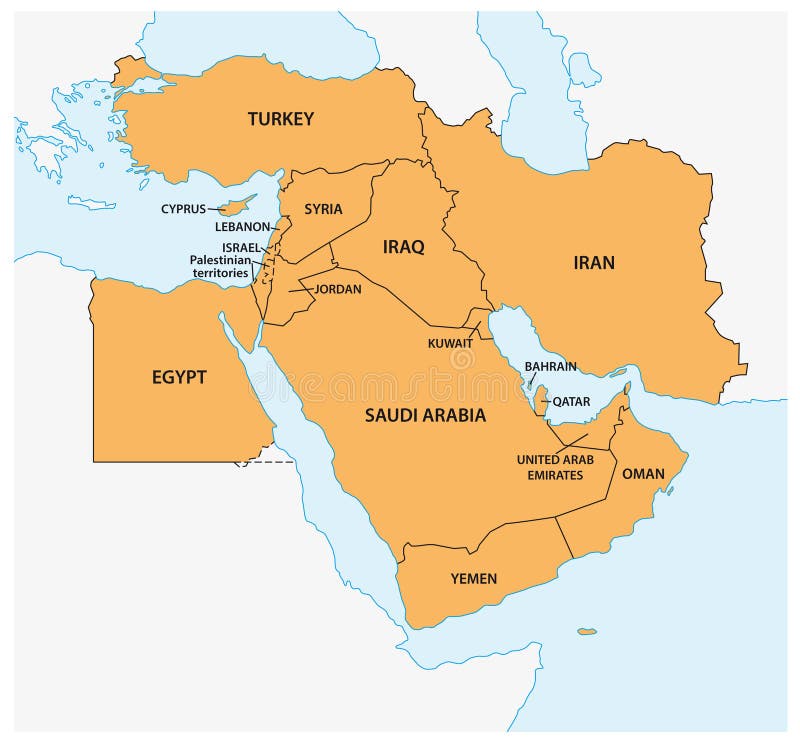China's LPG Imports: A Geopolitical Shift Towards The Middle East

Table of Contents
Rising Domestic LPG Demand in China
China's LPG consumption has skyrocketed in recent years, fueled by rapid urbanization, industrial expansion, and a rising standard of living. This surge in demand far outstrips the country's domestic production capacity, creating a significant gap that's being filled by imports, primarily from the Middle East. The increased use of LPG is multifaceted:
- Residential Sector: Millions of Chinese households now rely on LPG for cooking and heating, particularly in areas lacking access to natural gas pipelines. This residential demand is a major driver of increased LPG consumption.
- Petrochemical Industry: China's booming petrochemical industry utilizes LPG as a crucial feedstock in the production of various chemicals and plastics. This industrial demand adds significant volume to overall LPG consumption.
- Government Initiatives: Government policies promoting cleaner energy sources have inadvertently boosted LPG usage. LPG is viewed as a relatively cleaner alternative to coal, contributing to its increased adoption.
The limitations of domestic LPG production, coupled with this explosive demand, have made China heavily reliant on imports to meet its energy needs.
The Middle East's Emergence as a Key LPG Supplier to China
The Middle East possesses a compelling combination of factors that have made it the preferred source of LPG for China. Its vast reserves of natural gas, a primary source of LPG, provide abundant supply. Furthermore, geographic proximity significantly reduces transportation costs and transit times.
Favorable trade agreements between China and several Middle Eastern nations, such as Saudi Arabia and Qatar, further enhance the competitiveness of Middle Eastern LPG in the Chinese market. This collaboration includes:
- Investment in Infrastructure: Significant investments in new LPG export terminals in the Middle East have streamlined the export process, improving efficiency and capacity.
- Optimized Logistics: The development of efficient shipping routes and logistics networks has ensured a reliable and timely supply of LPG to China.
- Strategic Partnerships: Long-term supply contracts and strategic partnerships between Chinese energy companies and Middle Eastern producers have secured a stable flow of LPG.
These factors have solidified the Middle East's position as a pivotal LPG supplier to China.
Geopolitical Implications of China's LPG Reliance on the Middle East
China's increasing dependence on the Middle East for its LPG supply carries significant geopolitical implications. This reliance on a single region raises concerns regarding energy security and vulnerability to potential disruptions.
- Energy Security Concerns: A considerable portion of China's LPG imports now originates from a relatively concentrated geographic area. This dependence increases vulnerability to geopolitical instability, supply chain disruptions, and price fluctuations in the Middle East.
- Global LPG Price Volatility: The shift in LPG supply dynamics could influence global LPG prices. Increased Chinese demand, combined with potential supply constraints in the Middle East, could lead to price volatility in the international LPG market.
- Strategic Alliances: China's energy relationship with the Middle East extends beyond mere trade, fostering strategic alliances and diplomatic ties that have far-reaching implications for regional power dynamics. The Belt and Road Initiative plays a significant role in strengthening these partnerships.
Future Trends and Outlook for China's LPG Imports
The future of China's LPG imports from the Middle East is likely to be characterized by both opportunities and challenges. The trajectory of LPG imports will depend on several factors:
- Technological Advancements: Technological innovations in LPG production, transportation, and storage could significantly impact the efficiency and cost-effectiveness of LPG trade.
- Environmental Sustainability: Growing environmental concerns and stricter regulations regarding greenhouse gas emissions will likely influence the sourcing and consumption of LPG in China. Sustainable LPG production and transportation will become increasingly important.
- Global Climate Change Policies: The implementation of global climate change policies could affect the demand for LPG as countries transition to cleaner energy sources.
Conclusion: Analyzing the Shift in China's LPG Imports
In conclusion, China's growing reliance on Middle Eastern LPG imports is a complex phenomenon driven by a confluence of economic, geopolitical, and strategic factors. The surge in domestic demand, coupled with the Middle East's abundant resources and favorable trade relationships, has cemented this regional partnership. However, this dependence also carries geopolitical risks, underscoring the need for diversification strategies. Understanding the intricacies of China's LPG import strategy is crucial for navigating the complexities of the global energy market. Stay informed on the evolving dynamics of China's LPG imports and their global impact by following [link to relevant resources/publications]. A comprehensive understanding of China's LPG import strategy is essential for navigating the future of the global energy market.

Featured Posts
-
 Oil Price Update Market News And Analysis For April 23
Apr 24, 2025
Oil Price Update Market News And Analysis For April 23
Apr 24, 2025 -
 Chinas Impact On Bmw And Porsche Sales Market Trends And Future Outlook
Apr 24, 2025
Chinas Impact On Bmw And Porsche Sales Market Trends And Future Outlook
Apr 24, 2025 -
 Strengthening Canadas Economy The Role Of Fiscal Responsibility
Apr 24, 2025
Strengthening Canadas Economy The Role Of Fiscal Responsibility
Apr 24, 2025 -
 Key Bench Contributions From Hield And Payton Secure Warriors Win Against Blazers
Apr 24, 2025
Key Bench Contributions From Hield And Payton Secure Warriors Win Against Blazers
Apr 24, 2025 -
 Covid 19 Pandemic Lab Owner Admits To Faking Test Results
Apr 24, 2025
Covid 19 Pandemic Lab Owner Admits To Faking Test Results
Apr 24, 2025
Latest Posts
-
 Dance Track Review Neal Mc Clellands Ill House U With Andrea Love
May 12, 2025
Dance Track Review Neal Mc Clellands Ill House U With Andrea Love
May 12, 2025 -
 Celebrity Airport Style Jessica Simpsons Bold Cheetah And Blue Fur Coat Outfit
May 12, 2025
Celebrity Airport Style Jessica Simpsons Bold Cheetah And Blue Fur Coat Outfit
May 12, 2025 -
 Pokhudenie Dzhessiki Simpson Podrobnosti Ee Diety I Trenirovok
May 12, 2025
Pokhudenie Dzhessiki Simpson Podrobnosti Ee Diety I Trenirovok
May 12, 2025 -
 Neal Mc Clellands Ill House U Ft Andrea Love House Musics Latest Hit
May 12, 2025
Neal Mc Clellands Ill House U Ft Andrea Love House Musics Latest Hit
May 12, 2025 -
 Jessica Simpsons Cheetah Print And Blue Fur Coat A Glamorous Airport Look
May 12, 2025
Jessica Simpsons Cheetah Print And Blue Fur Coat A Glamorous Airport Look
May 12, 2025
